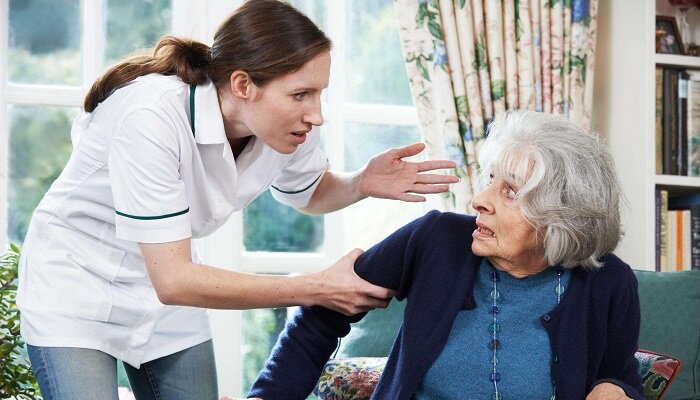A nursing home is where our beloved older adults can live out their golden years in comfort, safety and peace. Unfortunately, this isn’t always the case. Of all the things to consider when finding a nursing home, few people think about the prospect of nursing home abuse.
Nursing home abuse occurs when an elderly person is mistreated by nursing home staff. It can be physical, emotional, financial, or sexual in nature and can cause serious injuries to the victim— even sepsis or death. However, by learning what you can about nursing home abuse, you can take steps to protect your loved one and advocate for their care.
What Can Lead to Nursing Home Abuse?
Nursing home abuse can occur for several reasons. While nothing excuses harming our elders and loved ones, understanding what leads staff to neglect or mistreat their patients can help us address nursing home abuse and work to prevent it. Some of the issues behind nursing home abuse include:
Lack of employee training –
Many facilities do not provide adequate training for their staff members on handling patients with dementia or other conditions that may make them more prone to aggressive behavior. Unfortunately, this lack of knowledge leads some caregivers to retaliate against these residents instead of helping them adjust their behavior.
Poor working conditions –
The long hours and low pay that many caregivers face contribute significantly toward increasing their stress levels, making them more likely to lash out at patients who are difficult to deal with daily. Being understaffed can also lead to exhaustion and devastating mistakes.
Malicious intent –
Some people purposefully take jobs that give them power over others. Their abuse is intentional; they do their best to cover their tracks and intimidate their patients.
Some risk factors can indicate a resident is more likely to be abused. These include factors like age, cognitive impairment, mental illness, disability, or a history of being abused.
How to Advocate for Elder Care
It can be difficult for people with loved ones in nursing homes to know how to advocate for them. However, there are many strategies that you can use to help your loved one feel safe and comfortable in their environment. One of the most important things you can do is create a safe environment for your loved one by communicating effectively with staff members and other residents in their home.
If you notice any problems with the way your loved one is being treated or handled by staff members, speak up! You don’t want anyone else getting hurt because of something that could have been prevented if someone had spoken up earlier. Also, if another resident might need help, talk with them about what’s going on so they know they aren’t alone (and hopefully get some support).
How to Report Nursing Home Abuse
If you suspect your loved one is being abused, knowing the steps to take when reporting nursing home abuse is important.
The first step in reporting nursing home abuse is understanding the process of reporting and investigating claims of abuse. In most cases, you start by contacting a local agency such as Adult Protective Services (APS), the Illinois Department on Aging, or law enforcement officials. Of course, in the event of a medical emergency, always call 911 instead. You can report to the others later. The second step is knowing what evidence you must gather before making an official complaint against your loved one’s care provider(s).
For example: if your loved one has been physically harmed by another resident or staff member at their facility, photos of their injuries may be helpful when filing an official report with APS or law enforcement officials.
Seeking Legal Aid
You should also know that you don’t have to face this alone. You can get help gathering documentation and building your case through https://www.rosenfeldinjurylawyers.com/nursing-home-abuse-and-neglect.html. Rosenfeld Injury Lawyers, LLC is local to Chicago and has extensive experience seeking justice for the victims of nursing home abuse. They can help build your case, represent you throughout the lawsuit, and ensure you receive enough compensation to care for your loved one during their recovery.
Final Thoughts
Protecting your loved one from nursing home abuse in Chicago requires vigilance and proactive measures. It is crucial to be aware of the risk factors for abuse, to advocate for your loved one’s care, to seek legal advice if you suspect abuse, and to report any signs of abuse promptly.
Do your best to find a reputable nursing home facility with a good track record of providing quality care to its residents. Remember that your loved one deserves to live out their golden years with dignity, respect, and safety. By taking the necessary steps to protect them, you can ensure they receive the care they deserve.



















